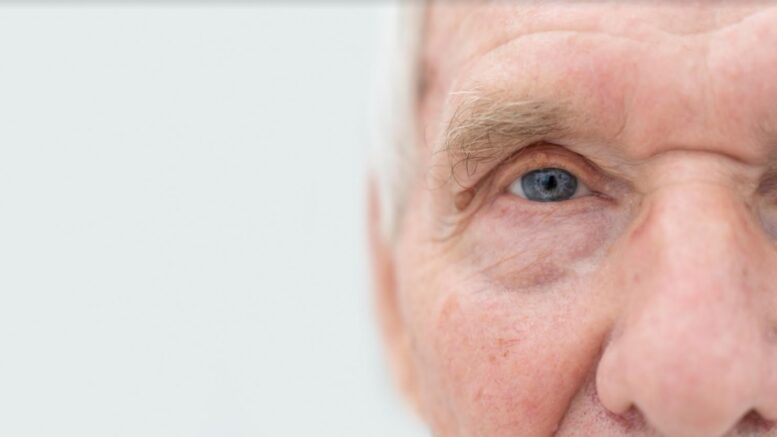Attention deficit hyperactivity disorder is a neurological disorder usually diagnosed in childhood. The condition is characterized by difficulty maintaining focus, hyperactivity, and impulsive behavior. If left untreated, these and other symptoms can pose challenges in different areas of life, from academic to social.
Although supposed to be a childhood disorder, ADHD often persists up to adulthood. So, can ADHD get worse with age? How do the symptoms change in different periods of life? All this is discussed below.
ADHD Overview
According to the APA(American Psychiatric Association), ADHD affects 8.4% of children and 2.4% of adults. Also, in 35 to 65% of cases, ADHD diagnosed in childhood persists to adulthood. There are three types of ADHD defined by the strongest symptoms present in an individual:
- Predominantly inattentive presentation. This type of ADHD has the individual struggling to pay attention or follow instructions, and one is easily distracted. Other symptoms include difficulty completing tasks, remembering details, and even daily routines.
- Predominantly hyperactive presentation. In this type of ADHD, the individual struggles to stay still and control impulses. Other symptoms include excessive talking and difficulty sitting down for long, whether to eat or work.
- Combined presentation. An individual with this type of ADHD equally manifests the symptoms of the above two types.
Any of these types can be managed effectively using different treatment options. These include medication, therapy sessions, and lifestyle changes. There is also an option of getting ADHD treatment for adults online.
ADHD and Aging
Aging may affect ADHD, but not everyone. According to the above-mentioned statistics, about half of those with ADHD will show a reduction in their ADHD symptoms with time. Usually, this results from treatment and mastering better-coping habits as one matures. However, if left untreated, the disorder can get worse.
The fear of ADHD getting worse with age stems from the changes in symptoms that may occur as one ages. For example, women may observe changes in the intensity of their symptoms after their first menstrual cycle and cross it over the years. As women age, the changes in estrogen levels can affect ADHD symptoms. Some may experience an improvement in their ADHD symptoms when pregnant, as estrogen levels increase during this period. As they decline during menopause, some symptoms may become severe.
As young adults with ADHD enter adulthood, the presentation of symptoms may evolve. Men with ADHD may struggle academically, experiencing difficulties with organization, time management, and completing tasks. ADHD in men may lead to impulsive decision-making and engaging in risky behaviors. ADHD can impact relationships, as individuals with the condition may have difficulties with attentiveness, listening, and emotional regulation. Men with ADHD tend to be easily frustrated, have mood swings, and struggle with anger management.
It is also possible for one to change their ADHD type in adulthood. Childhood hyperactive symptoms like excessive running and being constantly on the go tend to improve with age. At other times, the hyperactivity changes to restlessness and fidgeting. Inattentiveness tends to remain constant across one’s life, with some studies even showing that it may slightly increase in adulthood because of additional pressures of life.
How ADHD Manifests in Different Ages

ADHD symptoms in children and teenagers are clear and well-defined. These usually appear before age six and will be present in more than one situation or environment. Symptoms of inattentiveness in children include:
- Short attention span and distractibility.
- Carelessness.
- Struggle with organizing tasks.
- Forgetfulness and losing things easily.
- Difficulty sticking to time-consuming tasks.
- Constantly switching between activities.
Hyperactivity and impulsiveness in children and adolescents manifest themselves mainly through the following behavior:
- Inability to stay still, especially in a quiet or calm environment.
- Too much physical movement.
- Constant fidgeting.
- Acting without thinking about consequences.
- Talking a lot.
- Interrupting conversations.
The symptoms are subtle and not well-defined in adults, as there is little research in the area. However, some main symptoms may include:
- Poor organizational skills.
- High impatience.
- Restlessness.
- Continually starting new tasks with previous ones left unfinished.
- Challenges with coping with stress.
- Lacking time management.
The Importance of ADHD Treatment
Untreated ADHD is more common than one may think. Sometimes, adults with ADHD are not aware they have it. Considering the major symptoms of the conditions, if left untreated, ADHD can cause significant challenges and health risks.
Impulsivity and poor time management and organization skills can lead to overspending, forgetting about bills, and poor financial management, causing financial problems. Adults with untreated ADHD can have relationship problems caused by a lack of focus on their partners.
ADHD can also impair productivity at work leading to poor performance and placing employees at risk. Over time, ADHD in adults can lead to other mental health conditions like anxiety and depression if left untreated.
Conclusion
ADHD can interfere with the quality of your life at all ages, and untreated ADHD in adults can adversely affect careers and relationships. Fortunately, there are treatment options ranging from medications to therapy and various coping techniques for all ages. Earlier treatment in childhood reduces the severity of the condition as one ages. If you have a combination of the above symptoms, consider seeking medical help.
